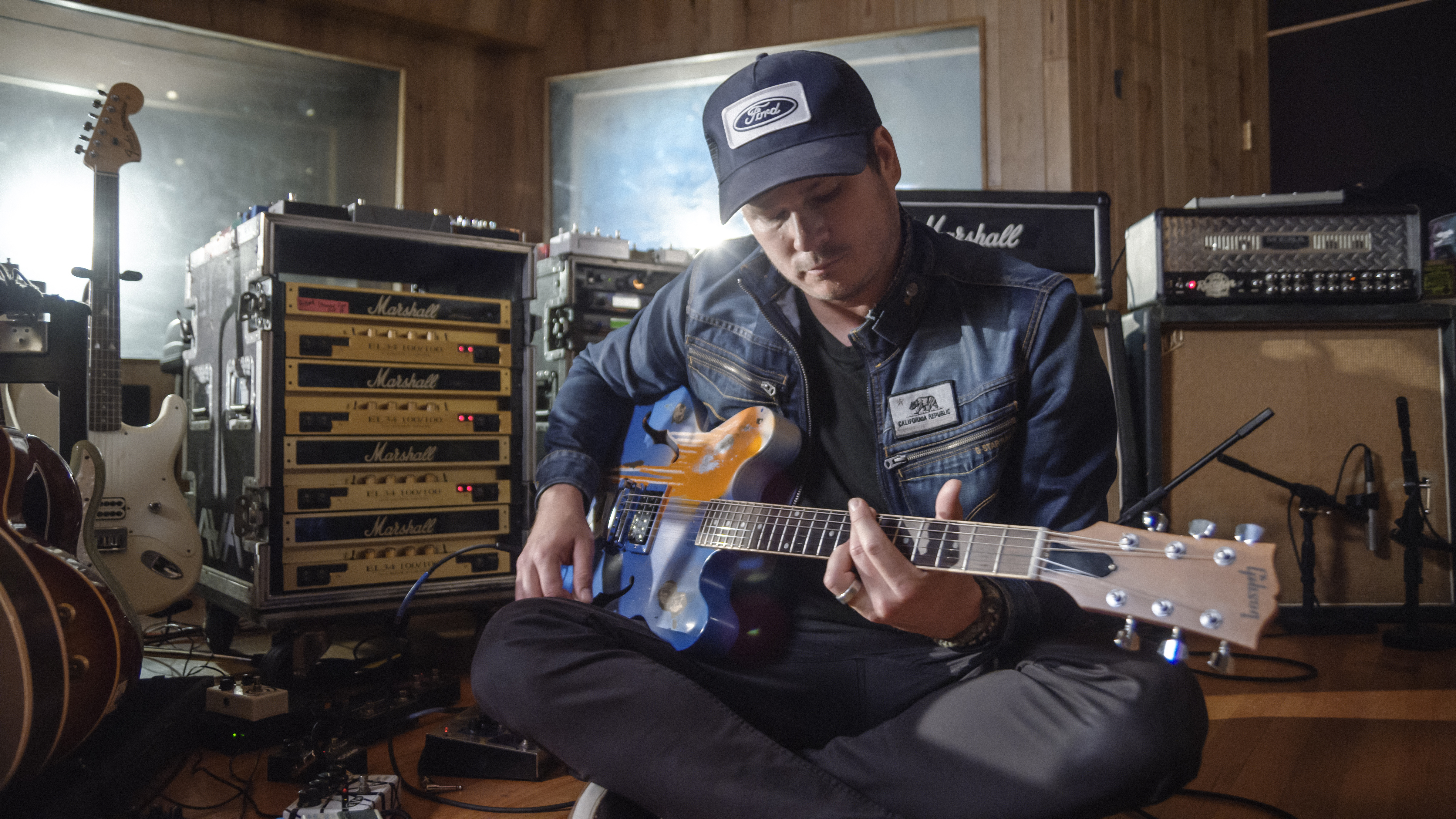Ernie Ball: The Pursuit of Tone, our television series which just completed its first season airing on the Audience Network, has covered quite the gamut of guitarists, from Tom DeLonge and James Valentine to Mike Ness and Butch Walker. If you haven’t been able to watch the show yet, we’ve put together a recap of the entire first season, as well as some of the most important things we learned from each of these guitarists throughout the course of the season. View the trailer for each episode below, and DirecTV customers can stream all the episodes in their entirety on demand.
Episode 1: Buddy Guy
“One Sunday evening a guy came through with a little amplifier about this big, and his name was Lightning Slim. That was the first electric guitar that I had ever seen, and I thought it was a joke.”
As Buddy Guy reflects on the first time he had ever seen or heard anybody play the electric guitar, he reminisces on the fact that the electric blues sounded very different back then. There were no “big, huge amplifiers like we have now,” just a small box with a bit of electricity to help you hear the music playing from across the farm.
Episode 2: Mike Ness
The Social Distortion frontman knew from day one that there are certain things to keep in mind while writing songs: You’ve got to write a song you want to hear on the radio, to make sure that the world hears you. You’ve got to keep the signature things that your fans love, the honesty and the attitude, the angst and the rebelliousness. And, you’ve got to not be afraid to think out of the box. Ness knows that he and the band wouldn’t be where they are now without taking risks.
Episode 3: Billy Duffy
“The New York Dolls, they didn’t make a lot of sense, but it was just a really good feeling.”
Record stores in the 1970s helped to shape Billy’s musical sensibilities. Picking up Led Zeppelin’s Houses of the Holy prompted him to work backward through more of Zep’s back catalog. Finding the New York Dolls also had a profound effect. While not being into “the glam thing” specifically, the rawness of the music and the attitude of their proto-punk style were a big deal for him back in Manchester.
Episode 4: Hunter Hayes
As Hunter progressed from his debut album through his later records, he found himself and his musical sensibilities evolving. Beginning to include more combinations of acoustic and electric guitars, while adding in more string elements like mandolin, which features prominently in his later recordings. He now feels that at this point, he’s found a solid foundation with such an expressive combination.
Episode 5: Tom DeLonge
“When Blink started, my biggest dream — my BIGGEST dream — was being big enough to play on my street in front of my neighbors. Like, what if I played, and neighbors came out and thought it was cool.”
Growing up in San Diego, California, Tom’s dreams were humble. The thought of playing a 2,000 person club venue was out of the realm of possibility in his eyes. When he thinks back on it now, and comes to the realization that he ended up reaching the point of selling 30,000 tickets every night “by playing dick songs,” the look in his eyes shows that even he realizes what an accomplishment this is.
Episode 6: James Valentine
“You’ve got your entire life to write your first record; not so much time for your second.”
After Maroon 5 won a GRAMMY award for Best New Artist, beating out Kanye West who was also nominated, the band was under immense pressure to follow up their debut album Songs About Jane. With their record company pushing them to retain their spot on the radio, the boys took the opportunity of having some money for the first time in their lives to cut loose and blow off some steam, having a little fun before cracking down and creating It Won’t Be Soon Before Long.
Episode 7: Butch Walker
“He shaped me, you know, and he whipped my ass. He made me work for every cent I ever earned, and taught me never to take anything for granted.”
Walker had a complicated relationship with his father while growing up in rural Georgia. Butch didn’t feel like he had earned his dad’s respect until he was well into his professional career. When his father got sick and wound up in the hospital, eventually passing away, it had a profound effect: as Butch’s brother in law said to him at the time, “you’re not a man until you lose your dad.” The event inspired the album “Afraid of Ghosts,” with every track on the record being about or for Butch’s father.


